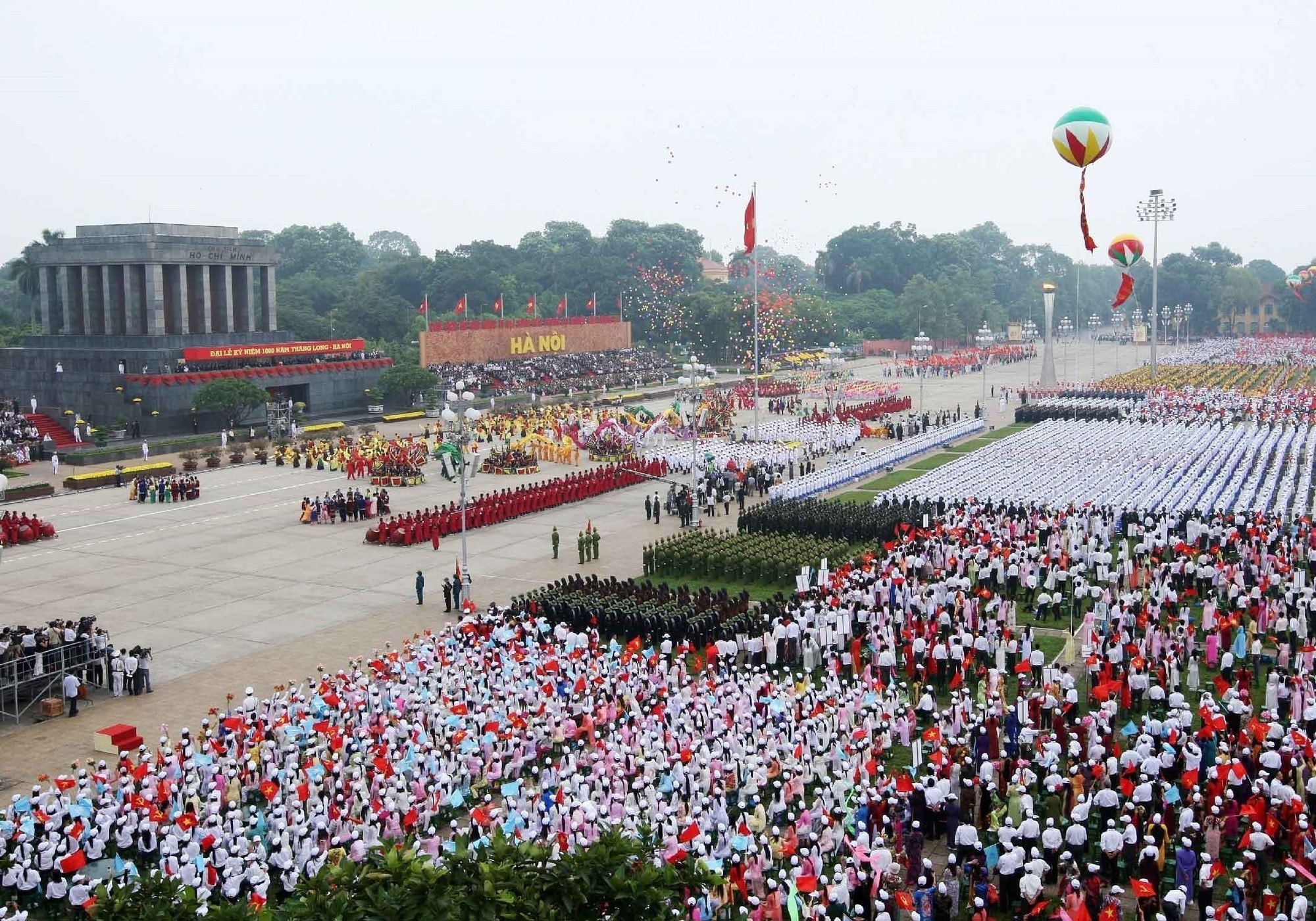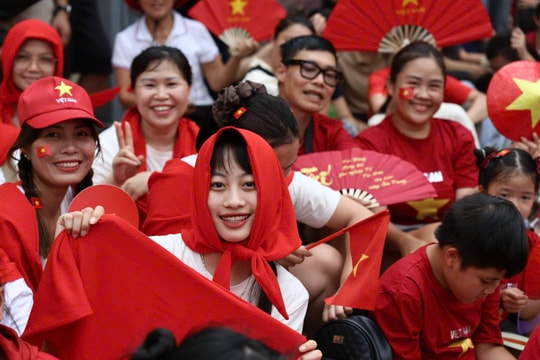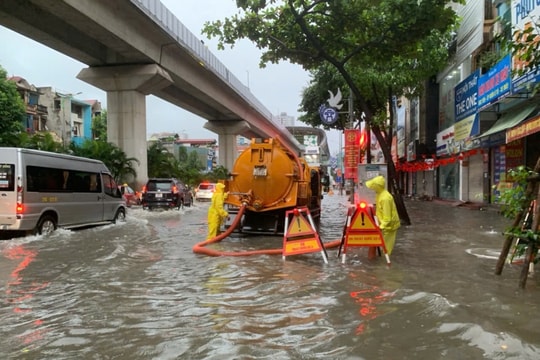80th National Day: Imprints on building and protecting national independence and sovereignty
The achievement of the struggle for independence in the August Revolution of 1945 was the continuation of our nation's tradition in history, especially since the Ngo Quyen uprising in 938, ending nearly a thousand years of Chinese domination.
Every nation has the right to be proud of its independence, which is also a pride in its equal relationship with other nations. Regardless of the historical period, the struggle for independence and sovereignty is still the main stream for the development and existence of each nation and people.
In the 20th century, Vietnam was not only proud of having won independence from colonialism but also the flag for the national liberation movement in many colonies around the world. From the struggle for independence in 1945 to the work of building and defending that independence was a glorious journey of the Vietnamese people, reflected in the basic marks.
September 2, 1945, a golden milestone in the history of the Vietnamese nation
In 1858, the French colonialists opened fire to invade Vietnam, marking the beginning of colonial exploitation in Indochina. Faced with the French colonialists' brutal colonial exploitation and exploitation policies, many uprisings broke out among our people, but were all brutally suppressed by the French colonialists. Despite their failure, the patriotic movement fostered a sense of national self-reliance and self-reliance in the struggle to expel the colonial invaders and regain national independence.
The desire for an independent and free country, the Dong Du and Duy Tan movements, initiated by two patriotic scholars Phan Boi Chau and Phan Chau Trinh, attracted and gathered a large number of Vietnamese patriotic youth to follow a new path to save the country. But it was not until the Communist Party of Vietnam was born (February 3, 1930), under the leadership of Nguyen Ai Quoc - Ho Chi Minh, that the path to fight for national independence became clearer.
With the correct leadership of the Communist Party of Vietnam, it has gathered a large number of patriotic Vietnamese people of all classes and strata, including foreigners, to unite and fight side by side to drive out colonialism.
Through the revolutionary movements of 1930-1931, 1936-1939 and 1939-1945, the peak was the August Revolution in 1945, the great national solidarity force, with the spirit, "Even if we have to burn the Truong Son mountain range, we are determined to gain national independence" "Whoever has a gun will use a gun, whoever has a sword will use a sword" rose up to fight the French, expel the Japanese, and gain national independence. On September 2, 1945, a golden milestone in the history of the Vietnamese nation - Vietnam gained independence.
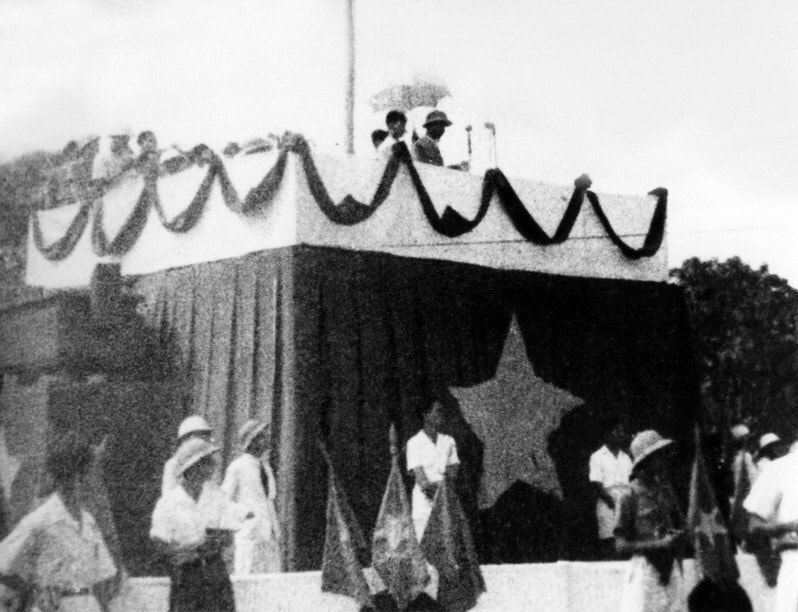
After nearly a hundred years of being colonized by French colonialists and Japanese fascists, our people suffered under the whips, tortures, and shackles of colonialism. The people of Annam, from a colonial status of “having no Fatherland”, on September 2, 1945, became the masters of an independent Vietnam. The will and desire for national independence of many generations of Vietnamese people for nearly a century finally won an “identity card” for the Fatherland of Vietnam, which is Vietnam on the world map - the Democratic Republic of Vietnam - the first People's Democratic State in Southeast Asia.
The achievement of the struggle for independence in the August Revolution of 1945 is the continuation of the tradition of our nation in history, especially since the Ngo Quyen uprising in 938, ending nearly a thousand years of Chinese domination. The movement to fight for independence and national sovereignty is like a continuous flow throughout the history of the Vietnamese nation, from defeating the Southern Han, Song, Yuan-Mongol, Ming invaders... to the French colonialists and Japanese fascists in the 20th century.
The will and desire for national independence of many generations of Vietnamese people for nearly a century has finally won the "identity card" for the Vietnamese Fatherland, which is Vietnam's name on the world map.
The era of national independence and socialism was opened in the Ho Chi Minh era - the most glorious era in the history of the nation, with strong influence, promoting the national liberation movement of colonial peoples in Asia, Africa, and Latin America. The model of the movement to fight for independence and sovereignty in Vietnam became the flag in the national liberation movement all over the world, attacking the stronghold of colonialism and imperialism.
The influence of the independence movement in Vietnam has a profound contemporary significance, which is to contribute to promoting the revolutionary movement along the socialist path and constantly supplementing and developing the Marxist-Leninist theory that the colonial national liberation revolution can break out and win before the proletarian revolution in the mother country.
Drive out colonialists and imperialists
The country had just gained independence but had to deal with countless difficulties and challenges, internal and external enemies, famine and ignorance; the state budget was empty; the government in some places was still in the hands of the enemy. The independence of our country was facing a dangerous situation like “a thousand pounds hanging by a thread.”
Faced with this dangerous situation, the Indochinese Communist Party determined that the important immediate task of the revolution was to maintain the revolutionary government, eliminate internal reactionaries, and improve the people's lives. Because the government is the fundamental issue of the revolution, the result of our people's persistent struggle over the past 15 years. As for the government, only by maintaining the government can we carry out the other tasks of the revolution.
To maintain the revolutionary government, the Party and President Ho Chi Minh implemented flexible strategies and policies. Regarding the government, we soon organized universal suffrage elections, established an official government, promulgated a Constitution, had a National Assembly, a Government, elected bodies, and administrative bodies at all levels. Regarding diplomacy, we implemented the policy of "making peace with Chiang to fight the French", we conceded 70 seats in the National Assembly to Chiang's government without an election and then "made peace with the French to expel Chiang" to avoid having to confront many enemies at the same time.
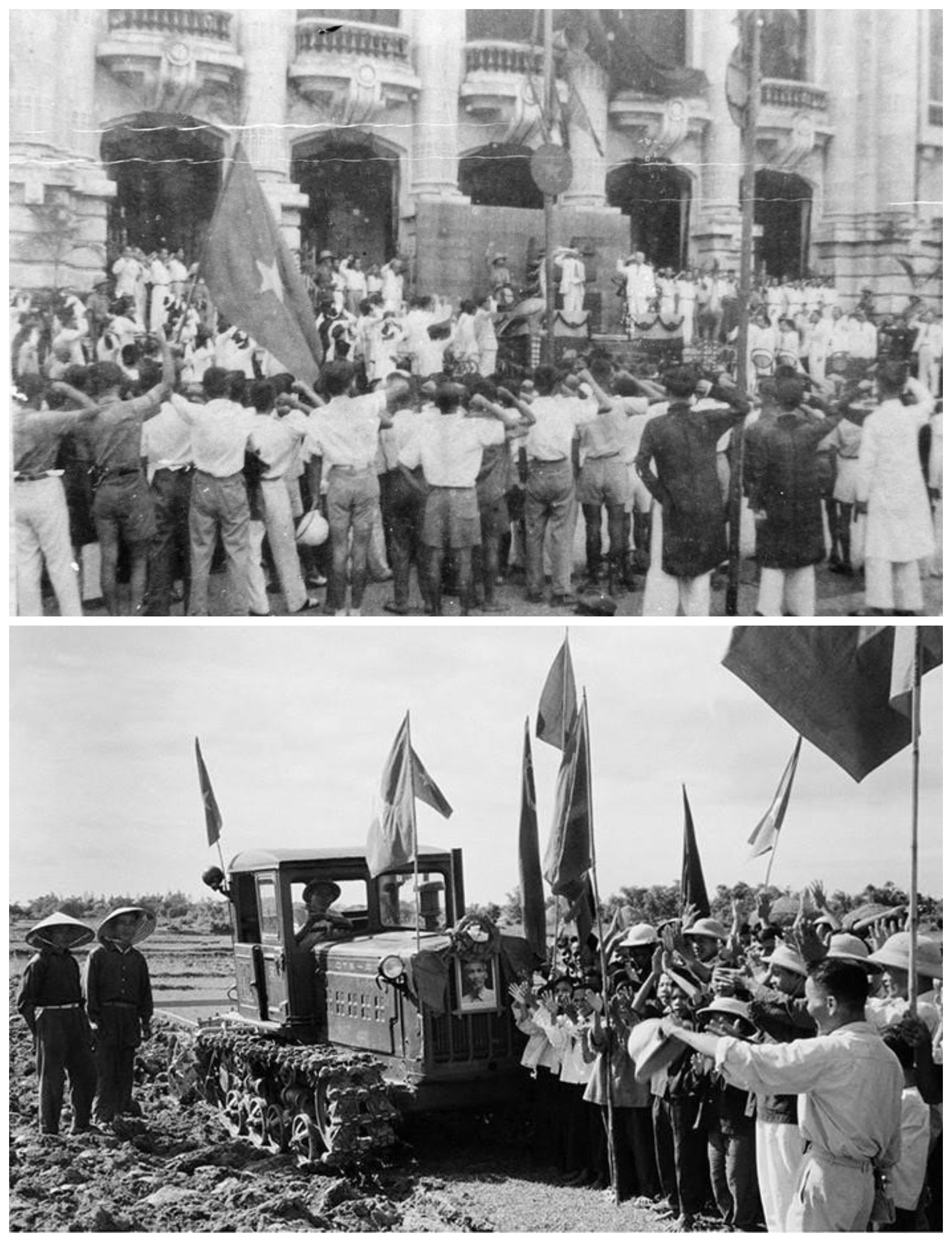
In terms of economy, the entire population was mobilized to respond to the “Golden Week” and the “Independence Fund”, so after only one week of launching, the Government was able to mobilize 370kg of gold and more than 60 million VND… In terms of culture, the “Popular Education” movement was launched to fight against hunger, illiteracy, and foreign invaders… With a series of correct and creative strategic measures and tactics of the Party and President Ho Chi Minh, the revolutionary government and the independence of our country were maintained in the midst of the enemy’s siege, isolation, and sabotage, the revolutionary strength was consolidated, and the whole country was ready to enter the resistance war.
When the resistance war against French colonialism broke out, the revolutionary government played a role in mobilizing human and material resources for the resistance war. From the Government to the localities, both the free zones and the temporarily occupied zones played a role in building a solid rear base to directly fight the enemy and support the front lines.
By maintaining the revolutionary government, the resistance war against the French brought into play the strengths of a people's war, a comprehensive, long-term, self-reliant war. The developments of the resistance war, from defense, resistance, counterattack, gradually defeated the French colonialists' invasion plot. The failure of the Dien Bien Phu Campaign forced the French colonialists to sit at the negotiating table at the Geneva Conference, recognizing Vietnam as an independent, sovereign, unified country and committing to withdrawing troops from Vietnam and the entire Indochina peninsula.
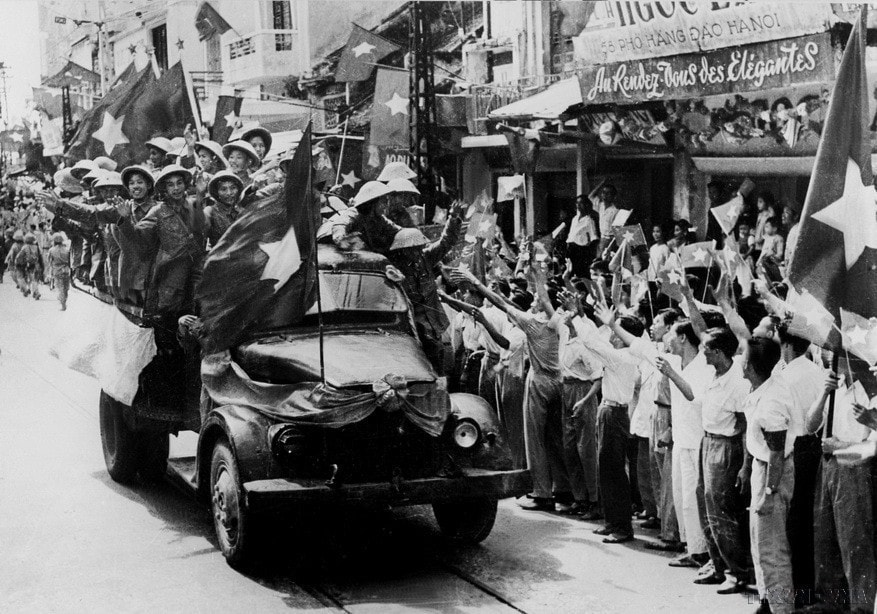
Since the Geneva Agreement in 1954, the North maintained its independence, developed along the path of socialism, and became a solid rear base, supporting the South in the fight against the US and its henchmen.
Maintaining the independence and sovereignty of the Democratic Republic of Vietnam mobilized the strength of the socialist regime in the North for the South to fight the Americans; building a broad international rear base to support the resistance of the people in the South. Therefore, there could not have been a victory in the resistance war against the Americans to save the country without the socialist North.
The North has successfully fulfilled its role as a strategic rear base for the South. The independence and sovereignty of the socialist North became the banner that gathered forces, creating domestic and international strength to defeat the American invaders.
Building and protecting national independence and sovereignty
After the victory of April 30, 1975, the country was unified, the whole country joined hands to heal the wounds of war and rebuild the country. However, in reality, there were still two governments: the Government of the Democratic Republic of Vietnam and the Provisional Revolutionary Government of the Republic of South Vietnam.
To unify the country in terms of state, from June 24, 1976 to July 3, 1976, the National Assembly of the unified Vietnam met in Hanoi and decided that the national name of our country would be the Socialist Republic of Vietnam and unify the national flag, national emblem, capital and national anthem. A unified state after the war was the common denominator to mobilize the strength of the entire nation to protect the achievements of the revolution, to protect independence, sovereignty and national unity.
After the war, our country faced numerous difficulties, especially the severe consequences of the war, the socio-economic difficulties due to the US embargo. Since 1975, the enemy waged war on both the southwestern and northern borders, directly threatening the independence and sovereignty of the country.
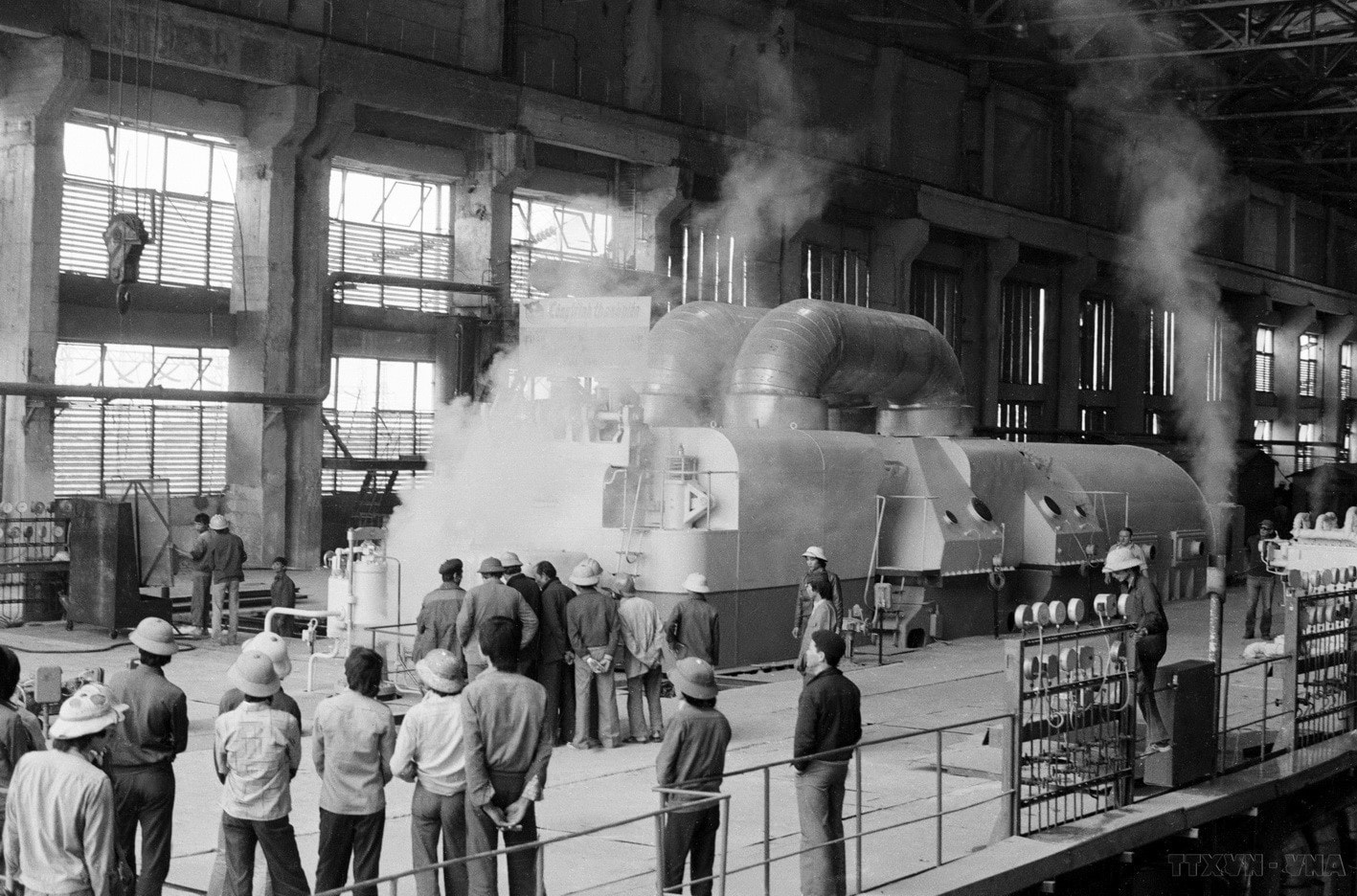
To maintain every inch of the Fatherland's sacred land, in 1979, our entire Party, people and army defeated two border invasion wars of the enemy, protecting the integrity of the land, airspace, borders, seas and islands of the Fatherland. Once again, the independence and sovereignty of the nation were firmly maintained against plots to weaken Vietnam.
While having to deal with two border wars, our country's subsidized economy revealed certain limitations that weakened the productive forces and outdated production relations that became barriers to social progress.
The country's economic structure is unbalanced, inflation is soaring at three digits (in 1986, inflation was 774.7%), people's lives are miserable, hunger is severe, people's trust in the regime is declining... if this situation of the country continues, it will seriously affect national sovereignty and the people.
The national renewal initiated by the 6th Party Congress has truly become an important mark in the historical flow of the nation.
Vietnamese history shows that, in the face of every difficulty, breakthrough innovations often appear. From “underground contracting” in agriculture, “breaking the fence” in industry… provided scientific arguments for the Party to propose a comprehensive and synchronous renovation policy in 1986.
The liberation of thinking from the 6th National Party Congress in 1986 became the driving force, awakening all resources, potentials, and creativity of the Vietnamese people in protecting independence and sovereignty in the face of challenges and difficulties of the country that were threatening the safety of the nation.
The national renovation initiated by the 6th National Party Congress has truly become an important mark in the historical flow of the nation, contributing to protecting the country's independence and sovereignty against the vortex of "Color Revolutions" in the West that impacted in the following years. The steadfastness in the goal of national independence associated with socialism has become a consistent lesson of the Vietnamese revolution. Only by following the path of socialism can national independence be firmly protected.
Promote bilateral and multilateral relations with countries and partners in depth
The success of the country's renovation has unleashed all domestic resources towards combining with international resources. In particular, since 1994, when the US lifted the economic embargo and normalized relations with Vietnam, along with the policy of "Vietnam wants to be friends" with countries in the international community, our country has gradually integrated deeply into global relations.
By 2025, Vietnam has established diplomatic relations with 194 countries, signed 17 free trade agreements (FTAs) with the participation of about 60 economies; participated in many regional and international organizations: ASEAN, ASEM, APEC, WTO...
Deep and open international integration has created important resources for Vietnam in building and defending the Fatherland. In particular, international integration in the fields of politics, security and defense has promoted bilateral and multilateral relations with countries and partners to go deeper.
Vietnam has actively participated in regional and international security dialogue and cooperation mechanisms, typically the ASEAN Defense Ministers Meeting Plus (ADMM+), the ASEAN Regional Forum (ARF), the Shangri-La Dialogue, as well as many other multilateral initiatives on traditional and non-traditional security, steadfastly promoting the principles of resolving disputes by peaceful means, upholding the role of international law, enhancing dialogue and building strategic trust among countries to contribute to maintaining peace.
Those activities have built Vietnam's goodwill in the eyes of international friends, mobilizing resources to realize the goals of socio-economic development and national defense.
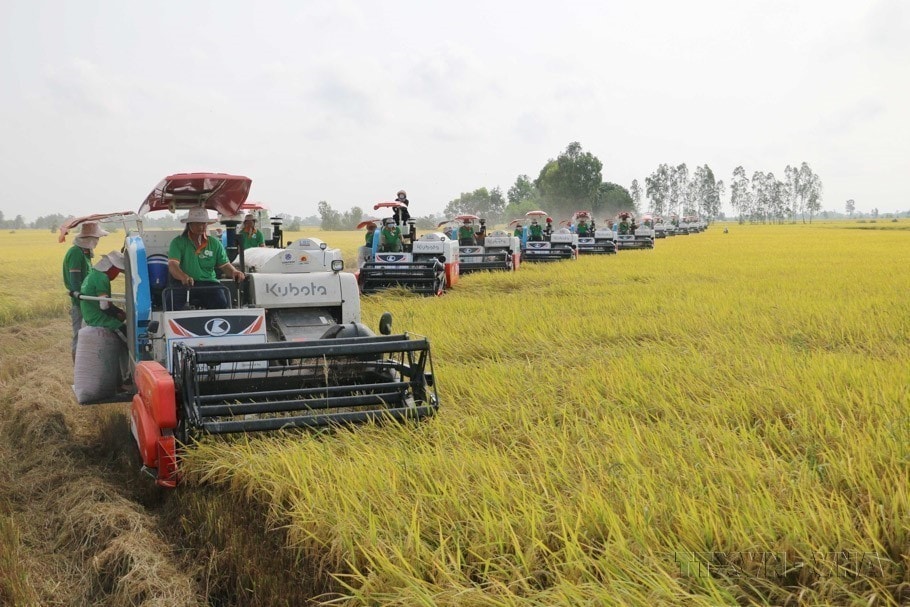
To protect independence and sovereignty in the process of deep international integration, the Communist Party of Vietnam firmly maintains the viewpoint of closely combining national strength with the strength of the times, in which relying mainly on one's own strength and the country's internal strength, arousing and promoting internal strength to the highest extent, and making the most of external resources.
Thoroughly implementing that viewpoint, our country's economic, political, socio-cultural, defense and security fields always ensure autonomy, self-reliance and self-strengthening, never being dependent, never being forced or dominated by foreign countries.
Building and protecting national independence and sovereignty is an important, regular and continuous task of the Party, State and people, in which the People's Army and People's Public Security are the core forces.
In the field of national defense, we always adhere to the "four no's" defense policy: Vietnam advocates not participating in military alliances; not ally with one country to fight another; not allowing foreign countries to set up military bases or use Vietnamese territory to fight against other countries; not using force or threatening to use force in international relations; so all military activities from building armed forces, developing defense industry are aimed at protecting the independence, sovereignty, and territorial integrity of the Fatherland, implementing the policy of defending the country "early, from afar", from when the country is not yet in danger.
Building and protecting national independence and sovereignty is an important, regular and continuous task of the Party, State and people, in which the People's Army and People's Public Security are the core forces.
Although in each period and historical stage, the task of protecting the independence and sovereignty of the Fatherland is different, the consistent goal is to firmly protect the independence, sovereignty, unity and territorial integrity of the Fatherland, to protect the Party, the State, the people, the socialist regime, the culture and national interests.
On the occasion of the 80th anniversary of the August Revolution, we review the important milestones in the construction and protection of the independence and sovereignty of the Socialist Republic of Vietnam, so that every Vietnamese person always believes, is proud and strives to build and protect that independence as if protecting themselves./.
